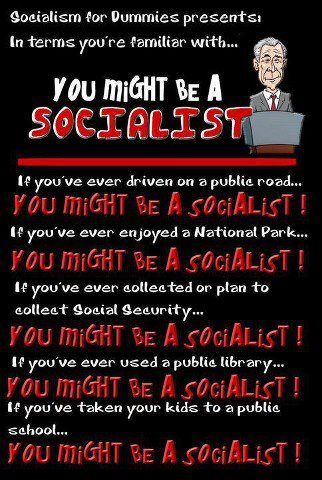Down boy!Your arguments are inconsistent. First you say that the word 'socialist' is too vague and then you use one particular form of socialism and conflate that with all forms. And you also react negatively when that is pointed out to you.
Down again!
I consistently use the dictionary definition for "socialism".
And I think the anger you sense is from within.
I don't mind in the least that you disagree.
He can call himself what he wants.Noam Chomsky for one described himself as a libertarian socialist.
But libertarianism & socialism are at odds in reality.
How so?
Examine countries which became socialist.
They're far less libertarian than capitalist countries tend to be.
You'd have to elaborate on how he tries to reconcile the two before I categorize him.But presumably you'll next pull out the "no true Scotsman" logical fallacy by saying he's not a true socialist?
Such things are more complex than you think.


